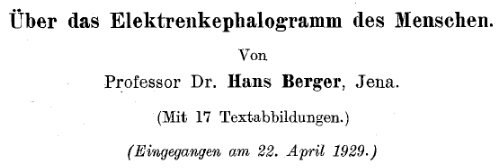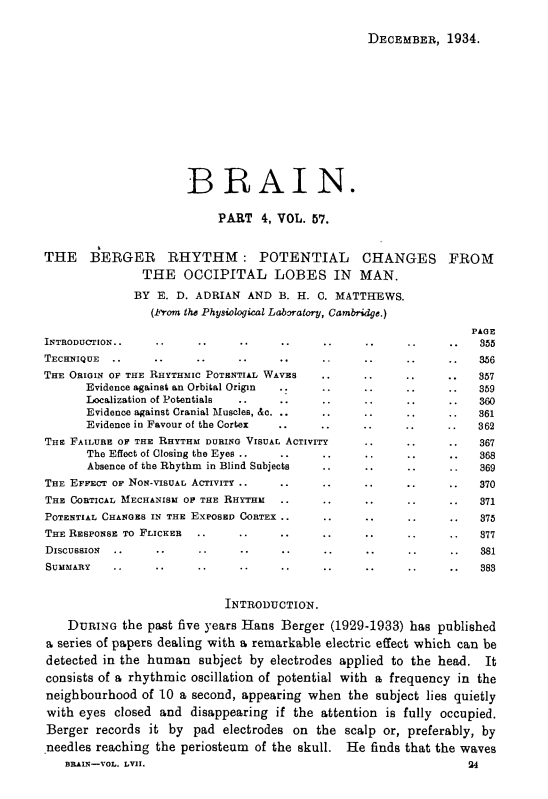
One of my favorite #histmed stories is the discovery of EEG by Hans Berger in the 1920s. #NeuroTwitter
At age 19, Berger (1873-1940) fell off a horse. On the same day, his sister, miles away, sent a telegraph to ask if he was doing ok. 1/10
At age 19, Berger (1873-1940) fell off a horse. On the same day, his sister, miles away, sent a telegraph to ask if he was doing ok. 1/10

He was fine, but he thought he had communicated his frightened thoughts about getting hurt to his sister by telepathy. He decided to study psychiatry, to learn more about inter-brain communication. 2/10
Berger wanted to measure the "psychic energy" that, he thought, tied us all together. He wrote about the "radioactivity of the brain," he studied circulation, he measured temperature of the brain during mental exertion (in a 23 yo patient with a gunshot wound to the head) 3/10 

Berger knew that Richard Caton (1842-1926) published in 1875 on electrical currents in rabbit brains that changed when you shone light into the eyes.
He was looking for something like this: a reaction of the brain to strong stimulation (like falling off a horse) 4/10
He was looking for something like this: a reaction of the brain to strong stimulation (like falling off a horse) 4/10

Berger built a home EEG, with needles that inserted in the periosteum😱, and used his kids, Klaus and Ilse, as test subjects (this is not recommended). Here's Ilse's EEG at rest, calculating, and answering the calculation. 5/10 

The first official EEG was July 6th, 1924, during a neurosurgery on a 17 yo boy. Berger then developed non-invasive techniques. In 1929 he published "Über das Elektrenkephalogramm des Menschen," mentioning alpha and beta waves - terms we still use today. 6/10 

Berger was, however, known for working in isolation, believing passionately in telepathy - and in short, being a little nutty. EEG didn't really become accepted until "Berger rhythms" were shown by other neurologists in 1934. 7/10 

Was Berger a Nazi? Well...like Asperger, his relationship to the Nazi party was complicated, but assuredly collaborative. Zeidman describes this nicely here @JChildNeurol: journals.sagepub.com/doi/full/10.11… 8/10 

The EEG is a flawed test - it measures electrical activity mostly in the superficial neurons of the cortex, and has pretty low sensitivity, as tests go. It's still one of our best tools for diagnosing and classifying epilepsies. 9/10 

Can you read someone's thoughts on EEG? Patients ask this a lot! Once a Lyft driver (who had never seen an EEG), told me that I could - if I was intuitive.
The answer is no. Your thoughts are your own, unless you choose to share.
Sorry, Dr. Berger (but thanks for the EEG). 10/10
The answer is no. Your thoughts are your own, unless you choose to share.
Sorry, Dr. Berger (but thanks for the EEG). 10/10

• • •
Missing some Tweet in this thread? You can try to
force a refresh



